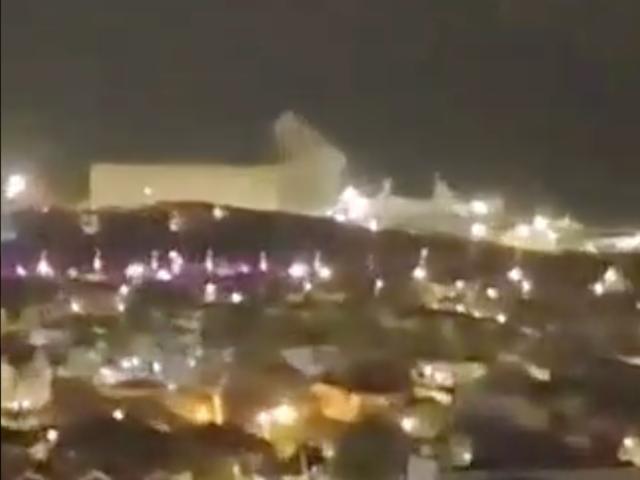In a concerning development from the southern Israeli city of Eilat, a naval base experienced minor structural damage following a drone strike that occurred under the cover of night. This event, which unfolded in the early hours of Monday, marks a deliberate escalation in regional tensions, pointing to a calculated attack originating from beyond Israel's borders. The unmanned aerial vehicle (UAV), identified as having been launched from Iraq, breached Israeli airspace via Jordan, unsettling the calm of the Red Sea resort town around 1:30 a.m.
The Israel Defense Forces (IDF) swiftly responded to the intrusion, with vigilant soldiers spotting the suspicious aerial target as it veered into Israeli territory. The drone ultimately descended in the vicinity of the Gulf of Eilat. Thankfully, there were no casualties reported, though the incident resulted in minor damage to one of the naval base's buildings. By Monday afternoon, the IDF had verified the strike on the Eilat facility and launched a thorough investigation into the circumstances surrounding the attack.
Difficult to tell but the target of the attack may have been a Saar 6 class corvett that appears to be docked adjacent to the area that is hit by a drone in Eilat, Israel tonight. If true, the Islamic Resistance in Iraq was meters away from achieving a hit on the Israeli navy. pic.twitter.com/pFZi6nV1hq
— Joe Truzman (@JoeTruzman) April 1, 2024
Responsibility for this bold aggression was claimed by the Islamic Resistance in Iraq, a collective of Iranian-supported radical Shi'ite militias, including prominent groups such as Kata'ib Hezbollah, Harakat Hezbollah al-Nujaba, and Kata'ib Sayyid al-Shuhadaa. This coalition, deeply entwined with Iran's Islamic Revolutionary Guard Corps, has been characterized by the Erbil-based Kurdish news outlet Rudaw as a covert network of Iraqi militia factions, notorious for their shadowy operations.
This incident is not an isolated act of hostility; it reflects a pattern of attempts by the Islamic Resistance in Iraq to target Israeli soil. Notably, in early January, the group dispatched two drones from Syria aimed at northern Israel, both of which were intercepted and neutralized by Israeli Air Force jets. These actions were purportedly in solidarity with Gaza. Additionally, in December, Jordanian defense systems thwarted an armed drone launched by the group targeting Eilat, underscoring the persistent threat posed by these militias.
How does a drone flown from Iraq get to Eilat without flying over at least one country that is a partner of the West…and it’s undetected…raises questions similar to how western allies hosted Hamas and never got wind of October 7.
— Seth Frantzman (@sfrantzman) April 1, 2024
Seems the region needs a lot better security…
The attack on Eilat also echoes the broader regional confrontation with Iran-backed groups, including Yemen's Houthis, who have previously attempted to strike Eilat with missiles and drones in a show of support for Hamas. Although these attempts have largely been foiled by the coordinated defenses of Israel, the U.S., and Saudi Arabia, or have failed to reach their intended targets, they highlight the continuous and multifaceted challenges Israel faces in safeguarding its territory and citizens from external threats.
The determination of these militants to breach Israeli defenses underlines the critical need for vigilance and underscores the complexities of regional security dynamics. As investigations proceed, the international community watches closely, recognizing the implications such attacks have for the stability of not just Israel but the broader Middle East region.


